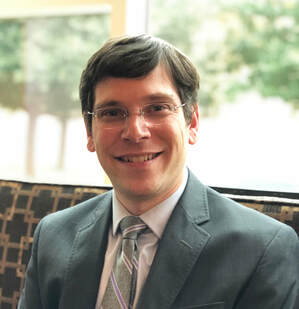 By Rabbi Adam Roffman I’ve had gourmet desserts in more restaurants (and even countries) than I can count. But there is nothing more decadent than a hot Krispy Kreme donut as it comes off the assembly line. When Krispy Kreme first opened in my hometown of Baltimore (where they had several kosher locations), there were lines around the block. Last week, I learned that I might have to think twice, next time, before I decide to indulge in a warm original glazed. Two years ago, Krispy Kreme, like Panera Bread, Peet’s Coffee, Einstein Bros. Bagels, Dr. Pepper and Snapple, was acquired by JAB Holdings. JAB is a German company, founded nearly two centuries ago. But as was the case for many German businesses that were around in the first part of the twentieth century, the company’s owners, the Reimann family, were avowed members of the Nazi party. They built their tremendous empire on the backs of Russian and French prisoners of war, who served as a slave labor force in their factories. The current owners, descendants of the two men who ran the company during World War II, no doubt, knew of their forbear’s despicable past, even commissioning a study a couple of years ago on how deep the connection ran between the business and the Third Reich. Pretty deep, they discovered. And yet, they chose to keep the conclusions of the study to themselves until they were exposed by a German tabloid newspaper. Once the study became public, the family confirmed its accuracy and pledged to give 10 million euros to as yet unnamed charity. In the ’70 and ‘80s many German businesses were forced to admit their role in the crimes against the Jewish people committed by the Nazis. They paid reparations to Israel and to the families of survivors to atone for their sins. Perhaps that is why most Israeli taxis are German cars and many Israelis have moved to Berlin. The German government has undergone no small amount of soul searching in recent years to understand and atone for the atrocities of the Shoah. When I was in rabbinical school, several of my classmates went on an all-expense-paid trip to the Rhineland to dialogue with government officials and civilians, Germans who were committed to doing whatever they could to right the wrongs of the past. It’s clear to me, when it comes to JAB Holdings, that’s not the case. Not only did they fail to disclose, unprompted, what they uncovered about their history, the amount of money they pledged to donate is insulting. As the humor site McSweeney’s wrote, this family that makes use of a Jewish sounding name to peddle their (mediocre) bagels and appropriates Yiddish slang like “schmear” to make their chain more “authentic,” decided that donating 0.0297% of their net worth was an appropriate gesture of apology. Shame on them. I’ll admit it. I consume a lot of their products. Shira and I only buy Peet’s coffee, we love it. We go to Panera regularly for salads. And Einstein’s is the most ubiquitous bagel chain in town (and I have eaten more bagels than perhaps any other food item over the course of my life). Though the foreign company that owns these chains has made some unconscionable errors in judgement, I have no wish to pass that judgment onto to the hundreds of hard-working employees who earn their living serving carb-addicted Dallasites like me. But JAB Holdings profaned the name of German industry through its actions during the war and they did so again last week. It’s our obligation to let them know that when it comes to asking the Jewish people for forgiveness, they have truly missed the mark. I encourage you to join me in writing to their Chairman at his overseas office to inform him that your rabbi says that he, his fellow owners, and his board of directors might want to take teshuva a little more seriously. Mr. Peter Harf CEO, JAB Holdings Oudeweg 147 Haarlem, 2031 CC Netherlands
1 Comment
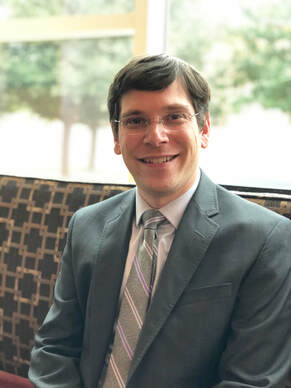 By Rabbi Adam Roffman I realized the other day that I probably spend six months thinking about the High Holidays and six months thinking about Purim. Seems a little strange that a relatively minor holiday should take up so much of my consciousness over the course of a year, but it’s true. I start thinking about what my Rosh Hashana and Yom Kippur sermon topics should be in April and gather my thoughts and sources over the course of the summer so that, by August, I’m ready to start writing. And right after Sukkot, we decide, as a staff, what our theme should be for Purim and my mind gets to work on imagining skits and videos and costumes (and this year a Broadway style show!) A month out, I start to write, and record and edit film, and plot about how much I can get away with when I ask the other Klei Kodesh to make a fool of themselves for our community’s entertainment (and they always oblige!) at the Family Megillah Reading. Shira contributes a great deal of the material (and does an incredible job of keeping me calm). And if you think that’s a lot of work, it’s nothing compared to what the rest of the staff and the rest of the community puts in to making this an incredible celebration. Katie Babin organized nine separate bakes that produced 3500 hamantashen so that, for the first time, we delivered homemade goodies, preservative free, and made with love to each and every member home. Our WFRS kids helped out as well. Their restraint in keeping themselves from eating the fruits of their labor was remarkable. Between the hamantashen and Mishloach Manot deliveries (which was GPS-aided by a new mapping application this year!) over 200 people volunteered (special thanks to our chairs, Jennifer Charney, Scott Cobert and Andrea Steiger) to fulfill the mitzvah of sharing food packages with neighbors for Purim. Our entire administrative staff also volunteers their time to staple, stuff, and organize our bags. And of course, we received so many generous donations from our community, so that we can continue to put on efforts like this year after year. Katie also works with Sarah Katz and Julie Carpenter to design signs and decorations to transform our sanctuary and social halls into superhero lairs, or Dr. Seuss books, or Hogwarts, and this year—a Broadway theatre. Sarah Lipinsky spends several weeks getting our students ready, this year helping them to organize booths for the younger children to enjoy. And Nathan and his crew get all the moving pieces in the right places and the right times. Needless to say, hundreds and hundreds of hours go into making this a very joyful and special day. This year, everyone has really outdone themselves. I’m especially excited for our Family megillah reading this year, which will feature amazing performances of some my Broadway favorites featuring our Klei Kodesh and special guests. The curtain goes up promptly at 6:30 pm in the Beck Family Sanctuary. Don’t be late for the show! 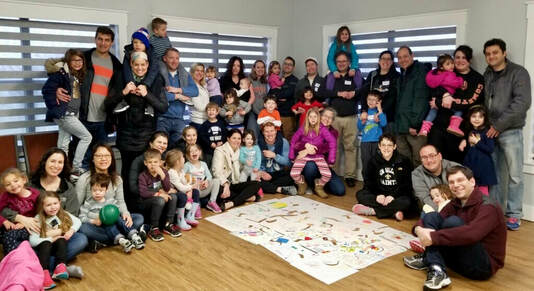 By Rabbi Shira Wallach The weather outside may have been frightful, but inside we made the best of it! This weekend, our most adventurous families made their way to Waxahachie to brave the cold, the wind, and the rain, so that we could experience a beautiful Shabbat together. I want to give you a couple of glimpses into the sacred time that we shared. On Friday night, Rabbi Roffman led his annual Bibliodrama session, in which he takes a beloved story from the Torah and allows parents and children to work together in order to retell and understand it from new perspectives. The story that we tackled was that of sending Moses down the Nile: how did his mother feel? What was his sister thinking? Why did Pharaoh’s daughter rescue him? And at each meal after that, if you looked over at the kids’ area where they could play when they were done eating, you could see them continuing to work out the story. On Shabbat morning, after morning tefilla, Sarah Lipinsky led an exploration into the weekly parasha by asking our children: What is your favorite room in your house and why? Do you think God would also enjoy that kind of space? What kind of a home would you build for God on earth? And then, our children led their parents in thinking through beautiful spaces for God. Some of their creations even boasted bounce houses, swimming pools, fully-equipped kitchens, lovely strings of lanterns, and glimmering jewels. On Saturday night, as we watched the sky grow dark, the temperature dropped and rain threatened. We sang a beautiful Havdalah inside, and then, most of us threw caution to the wind and went outside to toast marshmallows and enjoy the delicious nostalgia of s’mores. In the end, the crackling campfire and sheltering trees protected us from the elements. Back inside, we sang everything from “Brown-Eyed Girl” to “Twinkle Twinkle Little Star,” “Let it Go” to “Sweet Caroline.” In the morning, I asked families to talk about what they’d like to bring back to Dallas from the weekend, and then illustrate it on a large puzzle piece. Of course, we all loved the campfire, the music, and the company, but I also saw sketches of God’s house that the kids designed, Sarah’s incredible indoor obstacle course, a deck of UNO cards, and even one of the Shabbat-o-grams that we exchanged at the beginning of the weekend. You can see our assembled puzzle in the group photo; come by our offices soon to see the final laminated image! I want to thank our volunteer team Rachel Alexander, Shari Birnbaum, Amanda Franklin, Melissa Goldberg, and Julie Yochananov, and of course, none of this would be possible without the incredible Sarah Katz! Thank you to everyone who came, who helped create the special bonding and memories that will continue giving us joy. Let’s do it again next year! Much love, Rabbi Wallach 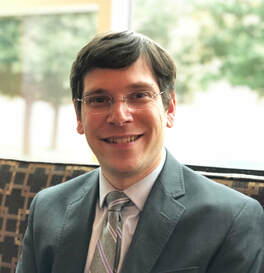 by Rabbi Adam Roffman One of the things that I love about being Jewish is that we are commanded to feel. God tells us that we must love Him. The Torah teaches us that we must be joyful on Festivals like Sukkot. And our sages insist that, even at a wedding, we should hold some sadness in our hearts for the sufferings of our people. For me, Judaism is often like a very powerful mood drug. Even if I’m commanded to feel sorrow, I’m grateful, because I know the emotion it evokes is an appropriate and even a productive one. We are now most of the way through the month of Adar I (this a leap year, so there are two months of Adar), a time associated with the ancient saying, “mi shenichnas adar marbim b’simcha” – those who embrace the month of Adar merit an overabundance of joy. For thirteen days, we anticipate the raucous celebration of Purim, and in the two weeks following we bask in the afterglow of one of the sweetest and most festive days of the Jewish year. But as you can imagine, maintaining this joyful countenance for a month straight—and this year for two months—is quite a challenge. The natural high of entering into this season only lasts so long. So, I often find myself looking ahead, planning moments of joy to ensure that I wear a smile on my face for as much of Adar as possible. This past Shabbat, we certainly succeeded in creating a moment of great happiness for our community. As we welcomed Dr. Benjamin Sommer, our Scholar-In-Residence, we also marked the first of what I hope will be many annual Shabbatot dedicated to the memory of Irene Kogutt, z’ll, a beloved figure in our community. Irene was a devoted member of our Shabbat morning Torah Study class, the Topletz Minyan, and our Adult Education classes for many years. She also made an extra effort to study on her own, with her chevruta Susan Ehrlich, in anticipation of her adult Bat-Mitzvah, no doubt one of the most joyful days of her life. That Irene so steadfastly pursued the mitzvah of Torah study was reason enough to honor her, thanks the generosity of her family and the many of our members who contributed to the Kogutt fund for Scholars-In-Residence in her memory. But what was also so fitting about this past Shabbat was that it fell right in the middle of the month of Adar. If the practice of Judaism is a mood drug, a surefire way to lift your spirits, so was the occasion of spending time with Irene. Except for the times when she expressed serious concern about my parenting skills (which, fortunately, was not too often), Irene always, always, had a smile on her face. She made the study of Torah joyful through her presence, her curiosity, and her infectious spirit. Even today, more than a year after her passing, it is impossible not to think of her and smile – even grin. This month, I pray that we continue to find ways of marking our time with joy – by honoring and remembering those we love, by committing ourselves to the study of our tradition, and by giving ourselves over to the celebration and the revelry of the season of Purim. Happy Adar! 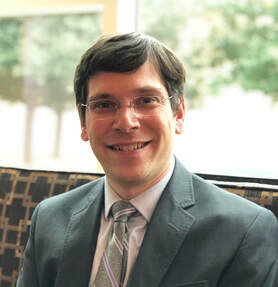 If there’s one thing we Jews can agree on, it's that the Ten Commandments are the most important commandments in the Torah, right? Not so fast. Sure, murder is really wrong, and honoring your parents is very important and Judaism wouldn’t be a monotheistic religion if idol worship was permitted. But it doesn’t say anywhere in Parashat Yitro, the account of the revelation at Sinai that we read this week, that these mitzvot should be prioritized above all others. Nor is the punishment for coveting your neighbor's wife or stealing as severe as the one for eating chametz on Passover (for which the offender is “cut off” from the Jewish people and from God). 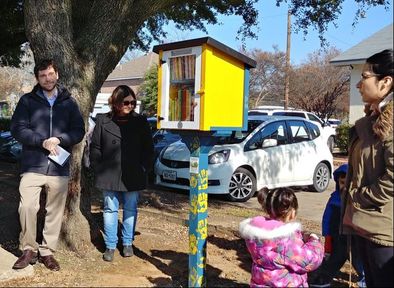 This past Sunday, I joined a dozen of our community members outside Literacy Achieves in West Dallas for the dedication of a Little Free Library, constructed by our social action committee. For those of you who aren’t familiar with the concept (and before they began this project, I wasn’t either!) a Little Free Library is a 6-foot, public space bookshelf. It’s placed outside, in residential neighborhoods, where residents can freely borrow from and continue to stock a collection of books for all ages. Our member, Mindy Fagin, who volunteers at Literacy Achieves, helped oversee the project from start to finish—building, painting, and installing the library in front of Literacy Achieves—as well as the collection of more than 200 books (so many, they couldn’t all fit!) 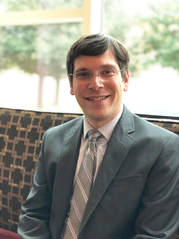 by Rabbi Adam Roffman While driving around Dallas this week, I listened to an interview on NPR with Dr. Duane Bidwell, a professor at the Claremont School of Divinity. The topic of the interview was his new book, When One Religion Isn’t Enough: The Lives of Spiritual Fluidity. His argument, essentially, was that there are a growing number of Americans who don’t identify themselves as being solely Christian, or Muslim, or Jewish but rather a combination of different religions. While much of this 21st century phenomenon is the result of intermarriage (he cites marriage between Jews and Christians as a primary example,) he argues that in today’s society it is becoming more and more acceptable to take on a much less dogmatic, more flexible religious identity. 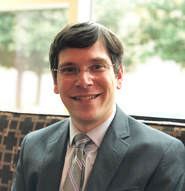 by Rabbi Adam Roffman When I found myself arm in arm with Shira, walking down the hallways of Levine Academy earlier this week after dropping Hannah off for school, suddenly struggling to stifle my sobbing, I realized that this is the kind of grief that gets worse before it gets better. And before the day was over, I understood why. I was stunned on Shabbat morning by the news of the shooting at Tree of Life in Pittsburgh. On Sunday evening, I was uplifted by the rush and emotion of the remarkably diverse gathering in the Aaron Family Sanctuary. And on Monday morning, once the details of a mass murder like this that we all seem to seek out, despite their horrific nature, had made their way into the daily papers, I was newly devastated. Dear Friends,
The joy and serenity of our Shabbat was pierced this morning with the news of the killing of eleven people at the Tree of Life Synagogue in Pittsburgh. This afternoon, what we no doubt suspected was confirmed by city officials: that this heinous act of cruelty was borne out of hatred for our people, our values, and our way of life. 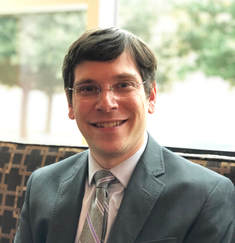 by Rabbi Adam Roffman When I was in day school, each spring, we would gather on the large front lawn of our synagogue’s campus for the annual balloon ascension. Scores of young children and teachers would march in formation, clutching dozens of strings in both hands, each one tied to a colorful balloon tagged with the name of an individual who had bought a raffle ticket for the event. With great anticipation, we waited for the signal to release the balloons up into the air; a sea of reds, blues, yellows, and greens. Finally, we returned to our classrooms and began an even longer period of waiting to see whose balloon would travel the farthest. |
Details
AuthorsShearith Israel clergy, staff and congregants share Archives
April 2023
Categories
All
|

 RSS Feed
RSS Feed